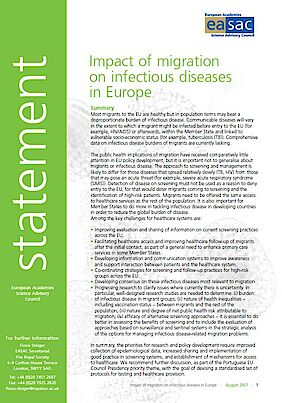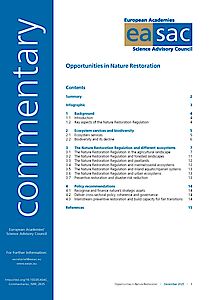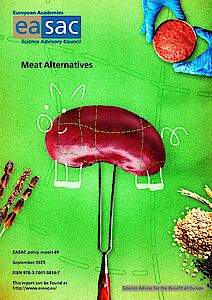Publications
Migration and Infectious Diseases
Abstract:
The healthcare screening and treatment processes for migrants entering the EU need to be better evaluated and coordinated across Member States to prevent the potential spread of infectious diseases such as TB and HIV the European Academies' Science Advisory Council (EASAC) has urged in a statement.
Summary:
Most migrants to the EU are healthy but in population terms may bear adisproportionate burden of infectious disease. Communicable diseases will varyin the extent to which a migrant might be infected before entry to the EU (forexample, HIV/AIDS) or afterwards, within the Member State and linked tovulnerable socio-economic status (for example, tuberculosis (TB)). Comprehensivedata on infectious disease burdens of migrants are currently lacking.
The public health implications of migration have received comparatively littleattention in EU policy development, but it is important not to generalise aboutmigrants or infectious disease. The approach to screening and management islikely to differ for those diseases that spread relatively slowly (TB, HIV) from thosethat may pose an acute threat (for example, severe acute respiratory syndrome (SARS)). Detection of disease on screening must not be used as a reason to denyentry to the EU, for that would deter migrants coming to screening and theidentification of high-risk patients. Migrants need to be offered the same accessto healthcare services as the rest of the population. It is also important forMember States to do more in tackling infectious disease in developing countriesin order to reduce the global burden of disease.
back to overview
































